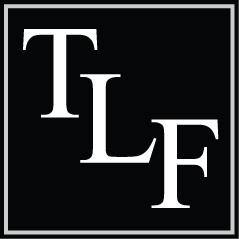With just a couple of weeks until Thanksgiving, be grateful for time off to prepare your work for a variety of upcoming contests that have a November 30 deadline! Prizes include $2,500 and publication for a short work of fiction, graphic narrative, or memoir or an excerpt from a longer work of prose; $2,500, publication, and 50 author copies for a poetry chapbook; and $1,000 and publication for a book of poetry, fiction, or creative nonfiction translated from any language into English. Continue reading to find details on nearly a dozen other prizes, and good luck!
Autumn House Press
Rising Writer Prize
A prize of $1,000 and publication by Autumn House Press is given in alternating years for a debut work of poetry or fiction. The 2024 prize will be given for poetry. The winner will also receive a $500 grant for travel and book promotion. Eduardo C. Corral will judge. The submission fee may be waived in cases of financial need. All finalists are considered for publication. Entry fee: $25.
Beloit Poetry Journal
Chad Walsh Chapbook Series
A prize of $2,500, publication by Beloit Poetry Journal, and 50 author copies is given annually for a poetry chapbook. A limited number of fee waivers are available upon request via e-mail. Entry fee: $20.
BOA Editions
A Poulin Jr. Poetry Prize
A prize of $1,000 and publication by BOA Editions is given annually for a first book of poetry by a U.S. resident. Matthew Shenoda will judge. Entry fee: $25.
Fish Publishing
Fish Short Story Prize
A prize of €3,000 (approximately $3,287) and publication in the annual Fish Publishing anthology is given annually for a short story. The winner will also be invited to attend a five-day short story workshop and read at the West Cork Literary Festival in July 2024. Sarah Hall will judge. All entries are considered for publication. Entry fee: €20 (approximately $22) for online submissions; €22 (approximately $24) for mailed submissions.
Green Linden Press
Wishing Jewel Prize
A prize of $1,000 and publication by Green Linden Press is given annually for an innovative book of poetry “that questions the boundaries of genre, form, or mode while engaging the rich possibilities of lyrical expression.” English translations of poems originally written in another language are accepted. Christopher Nelson will judge. All finalists are considered for publication. Entry fee: $25.
Green Linden Press
Stephen Mitchell Translation Prize
A prize of $1,000 and publication by Green Linden Press will be given annually for a book of poetry, fiction, or creative nonfiction translated from any language into English. Christopher Nelson will judge. All finalists will be considered for publication. Entry fee: $25.
LitMag
Anton Chekhov Award for Flash Fiction
A prize of $1,250 and publication in LitMag is given annually for a work of flash fiction. The winner will also have their work reviewed by agents from the Bent Agency, Brandt & Hochman, Folio Literary Management, InkWell Management, Sobel Weber Associates, and Triangle House Literary. The editors will judge. Entry fee: $16.
Munster Literature Center
Gregory O’Donoghue International Poetry Competition
A prize of €2,000 (approximately $2,192) and publication in Southword is given annually for a single poem. The winner will also receive a four-night hotel stay with full board to give a featured reading at the Cork International Poetry Festival in Cork, Ireland, in May 2024 and will be featured on the Southword Poetry Podcast. Entry fee: €7 (approximately $8).
Narrative
Fall Story Contest
A prize of $2,500 and publication in Narrative is given annually for a short story, a short short story, an essay, a short graphic narrative, a short work of memoir, or an excerpt from a longer work of prose. A second-place prize of $1,000 and publication in Narrative is also awarded. The editors will judge. All entries are considered for publication. Entry fee: $27.
Nina Riggs Poetry Foundation
Nina Riggs Poetry Award
A prize of $1,000 is given annually for a single poem that examines relationships, family, or domestic life and was published in a book or magazine in the last three years. English translations of poems originally written in another language are accepted. Entry fee: None.
Quarter After Eight
Robert J. DeMott Short Prose Contest
A prize of $1,008.15 and publication in Quarter After Eight is given annually for a prose poem, a short short story, a micro essay, or other work of short prose. Dianne Seuss will judge. All entries are considered for publication. Entry fee: $15.
Red Hen Press
Quill Prose Award
A prize of $1,000 and publication by Red Hen Press is given annually for a story or essay collection, a novel, or a hybrid work of prose by a queer writer. Carlos Allende will judge. Entry fee: $10.
Tadpole Press
100-Word Writing Contest
A prize of $2,000 is given biannually for a work of flash poetry or prose. English translations of works originally written in another language are accepted. Entry fee: $15.
White Pine Press
Poetry Prize
A prize of $1,000 and publication by White Pine Press is given annually for a poetry collection. Entry fee: $20.
Visit the contest websites for complete guidelines, and check out the Grants & Awards database and Submission Calendar for more contests in poetry, fiction, creative nonfiction, and translation.





